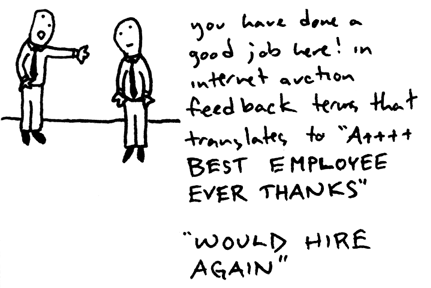There has been some rather loud sharing of alternate perspectives this week in our
Facilitating Online Communities (FOC08) course. I commented in an
email to the class:
I think these related discussions are quite interesting. It is very difficult to tolerate differences in worldview or educational perspective (among other things), and I think that courses that promote giving voice to alternative perspectives can in turn open learners to a world beyond their own comfort levels. This is one of the features that attracts me to Mezirow’s Transformative Learning.
I do wonder, though, at what point does a discussion sink to a level where facts (though not their meanings) begin to get clouded. Perhaps I am musing myself into a new blog post about this . . .
I am not overly interested in the discussions, but I think Leigh, the class facilitator, handled the increasing tensions exceedingly well. Learning happens differently for different people, and making and encouraging a space for that to happen is a good lesson for us educators.
The situation recalled when I first studied Jack Mezirow, who defined his concept of Transformative Learning as:
“the process by which we transform our taken-for-granted frames of reference (meaning perspectives, habits of mind, mind-sets) to make them more inclusive, discriminating, open, emotionally capable of change, and reflective so they may generate beliefs and opinions that will prove more true or justified to guide action” (Mezirow, J. (2000). Learning to think like an adult: Core concepts of transformation theory. In J. Mezirow & Associates (Eds.), Learning as transformation (pp. 3-33). San Francisco: Jossey-Bass).
In other words, when our we face something that does not fit into our previously-constructed worldview, we can either shrink back and take comfort (or hide) in our assumptions or face the fact that how we previously saw the world no longer fits; we must grow and in the process enlarge our worldview. This is the core of transformative learning as Mezirow describes it, and it is interesting how Leigh’s email has started me thinking about previous learning that is so fitting in this context.
BTW, transformative learning is a very painful experience; any time our values and beliefs get challenged and we run out of excuses for them can cause quite a stir.
